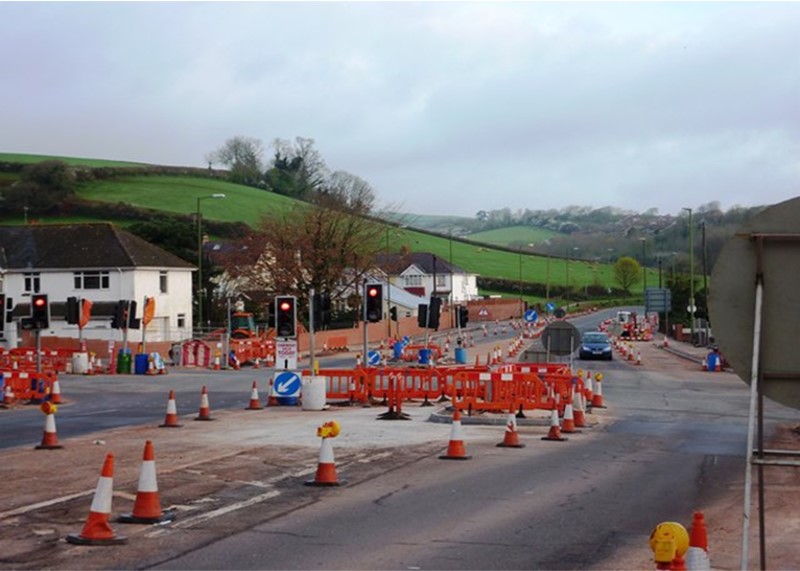News
Sorry, no results were found, search again?

Authority and other works necessitating diversion, removal or protection of utility apparatus have long been a feature of the utility sector, along with the questions of who does what and who is to pay for it.
For purposes of this article, the phrase “diversionary works” includes protective works to apparatus and removal of apparatus and not just diversionary works as they might generally be understood in the context of the New Roads and Street Works Act 1991 (“NRSWA”).
With HS2 Phase One now starting to cut a swathe across England and HS2 Phases 2A and 2B likely to do the same in time, the issue of diversionary works is likely to be a factor impacting on many statutory undertakers. Some of those undertakers may not previously have had infrastructure projects of such scale impacting upon their apparatus. Those undertakers who have been involved with HS2 or had other major infrastructure projects impact on their apparatus may be all too familiar with the potential complexities of this area. Whilst small scale diversions of apparatus within the public highway can be relatively straightforward, when multiple items of apparatus both in the public highway and private land need to be diverted, potentially over a large area, the complexities can significantly increase.
One common misapprehension with diversionary works is that NRSWA cost sharing discount applies across the board. Whilst such a discount might sometimes apply, it will not always apply. Understanding which piece of legislation may provide the grounds for diversion of which items of apparatus is key to understanding the basis of diversionary works and the costs recovery that may apply. A variety of different legislation may trigger diversionary works and includes:
- The New Roads and Street Works Act;
- The High Speed Rail Act 2017;
- Development Consent Orders under the Planning Act 2008;
- The Water Resources Act;
- Orders under the Transport and Works Act 1992; and
- Certain utility enabling legislation.
Legislation other than those listed above may also contain relevant provisions so the above list is not exhaustive.
An important point to note is that different parts of what might be considered the overall diversionary works project may be subject to different enabling legislation, particularly where the apparatus concerned is located within private land and the public highway over a large area. This can give rise to situations in which different parts of the overall diversionary works project may be subject to different cost recovery schemes. By way of example, one section of the diversionary works might be subject to NRSWA diversionary works whilst another is subject to another legislative basis. Diversionary works required by HS2 are a situation in which this possible hybrid cost recovery basis might arise. Such hybrids can also arise elsewhere.
Another critical factor is to ensure that any costs recovery is determined on the correct basis. By way of practical example, if one proceeded on the basis of NRSWA cost sharing applying across an entire diversionary works project, an undertaker might bear 18% of the costs associated with their diversionary works. If, however NRSWA only correctly applied to a small fraction of the overall diversionary works, the undertaker might only have been obliged to apply NRSWA cost sharing to only that part and could have made a full recovery of all its reasonable costs for the other aspects of the project. It is even possible within hybrid schemes that different parties might be liable to contribute towards the costs of different aspects of the overall diversionary works.
In any sizeable diversionary works project, incorrectly applying NRSWA cost sharing could unnecessarily cost the statutory undertaker significant sums of money. Even within diversionary works subject to NRSWA, it is not the case that cost sharing applies in all situations. There are some circumstances where works might be required under NRSWA to an undertaker’s apparatus where no cost sharing would be required and an undertaker would be entitled to full recovery of its associated costs.
Another situation in which problems can arise is where a statutory undertaker discovers works have been undertaken by an authority in the vicinity of it apparatus without any prior consultation having been engaged in. In some circumstances this may not be an issue. However, in others the undertaker may identify that diversionary works will have to be undertaken in consequence of those authority works. This may give rise to claims against the authority who failed to undertake advance consultation for the costs of the diversionary works subsequently required.
There are a number of other factors to be considered with any diversionary works that we will not address here. We may address the issues of betterment and deferment of time for renewal allowances that may accompany diversionary works in a subsequent article.
The importance of ensuring that any diversionary works project is carefully analysed to ensure that the correct parties are identified (and appropriate agreements entered) at the outset cannot be overstated. Without careful analysis, one could potentially prejudice the prospects of successful costs recovery.
We:
- Advise statutory undertakers in respect of diversionary works projects;
- Recently concluded on favourable terms for a client a multimillion pound arbitration where the claim arose from significant and large scale diversionary works; and
- Are advising various clients in respect of ongoing claims arising from diversionary works.
If you want to know more about our work in this area and whether we maybe able to assist you contact us.

On the basis of prevention being better than an expensive cure, we thought it worth offering some tips to avoid a trip (real or virtual) to the Magistrates’ Court in 2021 on street works related prosecutions – with its potential adverse reputational and financial consequences.
Our tips are as follows:
- Ensure that your staff and contractor teams understand the requirements that have to be met and are equipped to meet them;
- Robustly audit and monitor compliance of works done by direct labour and contractors;
- Monitor defect reports and FPNs and address any substantive issues that are identified;
- Respond in a timely and effective fashion to any alleged non-compliance that might give rise to a prosecution; and
- Undertake root cause analysis on any problems identified and implement effective change to reduce the risk of re-occurrence.
Applying similar processes, the risks posed by FPNs, s.74 charges and defect inspections fees can also be reduced. Every FPN is a potential criminal prosecution.
If your business has the misfortune to find itself facing criminal prosecution or civil disputes under the New Roads and Street Works Act 1991 and related legislation, our team has extensive experience of advising and training undertakers and their contractors on street works compliance and defending related criminal prosecutions and civil disputes.
Do contact us if you think we can assist in reducing your legal risks from street works.

One of the more complex aspects for applicants seeking Code Powers from Ofcom to consider is that of funds for liabilities. The idea behind funds for liabilities is that there is financial provision made by the applicant prior to it commencing operations against the possibility of it subsequently going ‘pop’, leaving other parties facing liabilities arising from its acts/omissions. Its aim is to avoid some of the problems that arose with the UK cable boom in the 1990s and its subsequent bust which saw various operators going to the wall with unfinished works and apparatus and infrastructure in need of removal.
For many start ups giving consideration to the possibility of failure and making provision for it before they can even commence operations is an unattractive proposition. No one wants to start a business by considering its possible failure. It is however something that has to be done as part of the application under s.106 of the Communications Act 2003 for a direction applying the Electronic Communications Code. The requirements for funds for liabilities arises under Regulation 16 of the Electronic Communications Code (Conditions and Restrictions) Regulations 2003. Those regulations detail the potential liabilities and circumstances that need to be addressed.
Ofcom does have Guidelines on Assessing Funds for Liabilities under Regulation 16 of the Electronic Communications Code (Conditions and Restrictions) Regulations 2003 that can be found via this link. These guidelines are a useful starting point for an applicant considering this aspect.
Determining what may be an appropriate level of funds for liabilities provision and how it should be made is something that requires careful consideration of the nature and scope of the proposed operation. One also has to take account of financial reality in terms of what provision a potential start up business might afford to make. There is not therefore a ‘one size fits all’ funds for liabilities provision and each application needs careful consideration to ensure that an appropriate level of provision is made.
There is no requirement that funds for liabilities are in place before the grant of Code Powers. However, provision of those funds does have to be in place before Code Powers are exercised.
Another aspect that does occasionally appear to get overlooked is that the funds for liabilities need to be reviewed on an annual basis by a party holding and exercising Code Powers. If an applicant has been successful in its roll out, the appropriate level of funds for liabilities provision in year three of its operation may be significantly different in terms of amount and method of provision.
We:
- advise companies on whether they are eligible to secure Code Powers;
- advise on funds for liabilities requirements;
- apply to Ofcom and secure Code Powers on behalf of companies; and
- advise new and existing Code Power operators on the extent and operation of their Code Powers and their wider regulatory responsibilities.
Contact us if we can assist you in respect of the Electronic Communications Code.